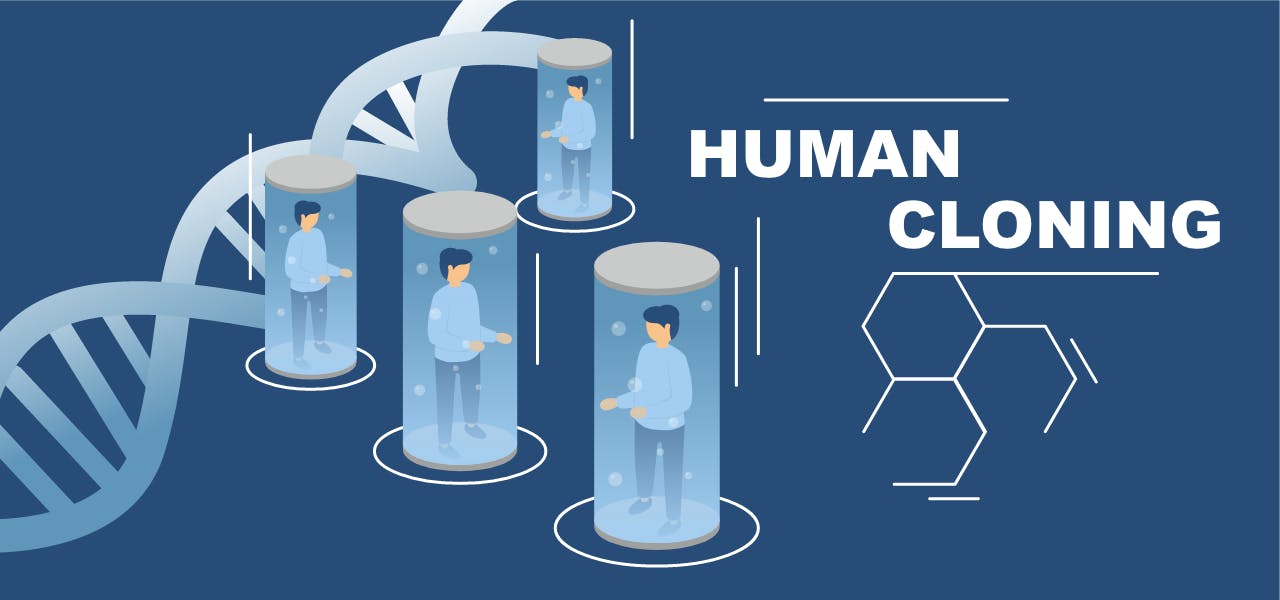Movies and books are full of worst-case scenarios that could occur when science interferes with natural evolution and religion. One only has to watch Jurassic Park or The Terminator to see the potential ramifications of science gone bad. The warnings that are obvious with fields like cloning, however, haven’t been heeded, and researchers continue to experiment with living creatures to see how far they can take duplication of DNA.
This started with mice and sheep, but has now moved into the attempt of duplicating humans through cloning. What was once a controversial issue fought by animal rights activists has now become a global outrage as billions of people argue whether cloning humans is ethically and morally right or wrong. The controversy is huge, and whether scientists will be able to continue their experiments in this field is a matter of which ethical theorists win.
The Beginning of Cloning Living Creatures
The idea of cloning is to make a genetic copy of something that mimics the original source exactly. This can be done with everything from genes to entire animals. Clones are a natural part of the world, existing in single-celled organisms that replicate themselves to reproduce, like bacteria. Even humans have a version of clones that occur naturally when twins and other multiple babies are created.
However, scientists are working to develop clones beyond nature. In labs, genes are cloned so that we can study them and understand how they work. DNA is extracted from the living creature being studied, then it is inserted into what is called a “carrier.” When the carrier reproduces, the gene is duplicated.
Through a process called “embryo twinning,” scientists can now clone animals. The animal embryo is split in half and then inserted into the uterus of the mother animal. The embryo parts develop into their own complete but unique animal, but both of the animals share the same genes.
This same idea occurs in a method called “somatic cell nuclear transfer.” A somatic cell is a complete set of every cell that makes up a living organism outside of the sperm and egg cells. Somatic cells have two full sets of chromosomes, so when the DNA out of these cells is transferred into an egg without a nucleus or DNA, it turns into an embryo with the somatic cell’s genes. The embryo is then, again, implanted into the mother’s uterus.
This process has been used since 1996 to clone animals, starting with a sheep named Dolly, cloned from an adult sheep’s udder cell. After that experiment was successful, scientists have been able to clone cows, horses, rabbits, and other animals. The next goal for many of these scholars is to clone a human, but they not only face a lot of natural obstacles, they also face many ethical ones.
The Ethics Behind Moving into Human Cloning
The immense complexities of the human body make it difficult to create a clone that survives the gene replication process. Many genetic mistakes are possible when so many chromosomes are in play. But even if it was possible, the ethics behind this action are preventing scientists from moving forward.
The biggest argument comes from those who believe that a human embryo, regardless of its original source, is a viable human child. Even though activated eggs don’t come from the sperm and egg cell the way an actual child does, the end result is a living human that was created, in essence, to be able to learn from. Some scientists have suggested that activating a cell and growing a human clone could be used as a way to benefit others by harvesting the organs and stem cells. But this, it is argued, is ethically unacceptable, since the entire reason behind creating a human being is to reduce it to something to be studied and, eventually, destroyed.
The arguments for and against human cloning have very powerful potential both ways. There is a lot of good that could come from being able to clone organs and help those who are dying from heart, kidney, or liver failure, for instance. Using stem cells has been shown to have significant benefits to solving chronic and fatal diseases. There is so much good waiting to be unearthed with the study of using humans to further science, but ethically, it’s a line that is very blurry. Until the legal ramifications are mixed with ethical considerations, not to mention the morality from the religious spectrum, the research must be placed on hold or done in limited scopes.
Use Impactio to Spread Your Argument Further
Controversial issues don’t get resolved with hot-headed arguments. You must present yourself in a professional, impressive manner in order to convince others that you know what you’re talking about. One way to do this is to use Impactio’s community of scholars to network with and boost your academic resume with your achievements to prove to others that they should listen to you.
Impactio’s scholastic platform was designed specifically for experts. Social media is the way to move forward in any career, but not every forum is geared towards professionalism. But when you’re ready to spread your argument, get your point across, and increase your scholarly reputation, Impactio is the way to go for those in any industry.
